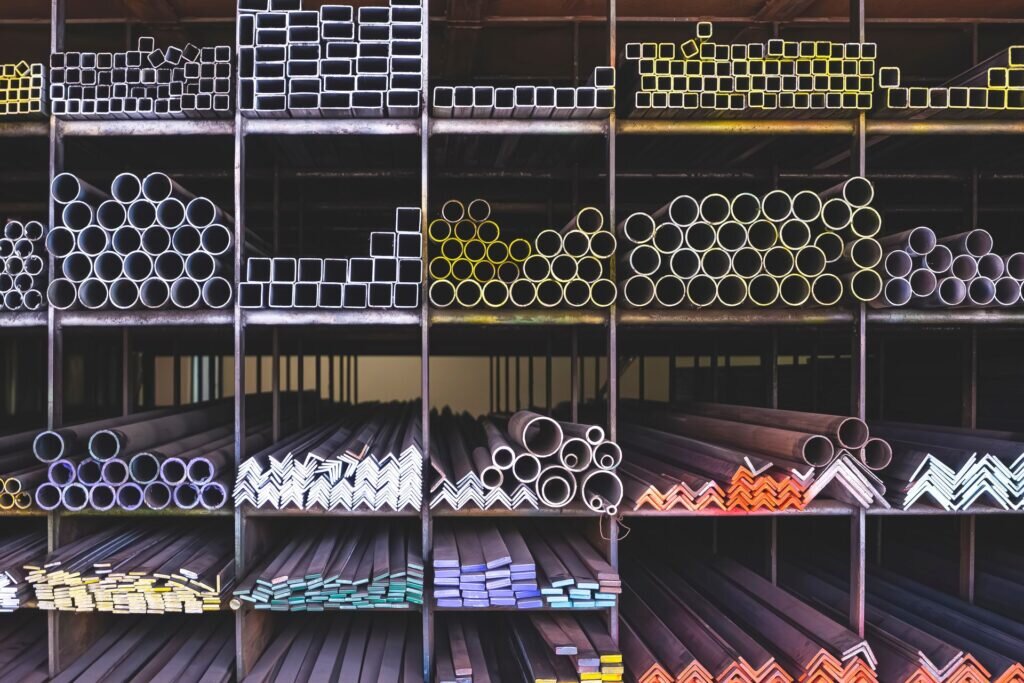
In construction, relationships with your suppliers extend beyond mere transactions; they form an integral part of your business ecosystem. Consider this as laying the foundation for both your physical projects and long-term business success.
A reliable building supplier is invaluable when it comes to providing concrete, timber, and steel. Your suppliers have enormous influence, affecting everything from the quality of your construction projects to the timeliness of deliveries.
Strategic selections and relationship nurturing can give you a distinct advantage in a fiercely competitive market. In an industry where even minor delays or flaws can be costly, these relationships could be the linchpin of your business.

- Choose Your Supplier Wisely
Selecting a supplier requires considering competitive rates, top-notch materials, and encouraging customer feedback. Above all, focus on finding quality supplies for builders that surpass industry benchmarks. Doing so lays the groundwork for a partnership based on trust and dependability.
A comprehensive initial assessment saves you from complications later. Prioritise suppliers with a consistent track record, robust financial standing, and effective systems for handling orders and quality assurance.
Also, consider a supplier’s commitment to ethical and sustainable practices. This not only aligns with sound business ethos but also enhances your company’s standing for responsible material sourcing.
- Regular Communication Is Vital
Strong relationships thrive on transparent and straightforward dialogue. You avoid future hiccups by keeping your supplier informed about changes in project scope, timelines, or specifications. Employ communication methods that are effective for both parties involved.
Whether via scheduled phone conversations, email exchanges, or in-person meetings, ensure clarity and mutual understanding. Remember, dialogue is a two-way process; their hands-on experience can provide invaluable insights that aid your decision-making for future projects.
- Understand Contractual Terms
Being fully aware of expectations from both sides can minimise the risk of disputes. You can consult legal professionals to clarify any complex or ambiguous terms. Being ignorant of these terms could be perilous when contractual responsibilities are at stake.
Ensure that any alterations to contractual arrangements are meticulously documented and mutually agreed upon. A clearly defined and well-understood contract is the guiding framework for future interactions.
- Adapt And Collaborate
The construction sector is in constant flux, introducing new materials and technologies at a swift pace. Be open to experimenting with innovations that your supplier recommends. Share your advances and best practices, too.
Collaborative engagement enhances problem-solving and project outcomes, although this should never come at the expense of quality or safety. Validate the effectiveness of new approaches or materials before making any long-term commitments.
- Deliver On Commitments
Consistent dependability is crucial for maintaining a harmonious relationship with your supplier. When a payment deadline is set, or a shipment is expected within a particular window, respect those timelines.
Failing to do so damages your credibility and interrupts your supplier’s operations. Unforeseen obstacles are given in the construction industry. If you hit a snag, proactive communication with your supplier can make all the difference in maintaining trust.
- Cultivate Mutual Esteem
The cornerstone of any robust business interaction is reciprocal respect. This extends beyond adhering to contractual provisions or timely payments. It encompasses professional decency, such as prompt responses and fair negotiations. You should appreciate your supplier’s expertise and experience.
Your genuine interest in their business can pave the way for joint ventures or other collaborations. When disagreements surface, as they inevitably will, tackle them professionally and respectfully. These issues often reveal room for refinement on both sides.
- Make Them Part Of Your Strategy
View your supplier as a strategic ally. Their materials are integral to the success of your construction projects. Invite your supplier to team briefings, strategy discussions, or project evaluations.
This promotes shared goals and enhances teamwork—however, exercise discretion in sharing proprietary information. While openness is essential, your intellectual property and confidential data should remain secure.
- Long-Term Engagement
A supplier relationship should evolve into a strategic alliance. Long-lasting partnerships offer opportunities to fine-tune operations, benefiting all stakeholders. You should appreciate your supplier’s expertise and experience.
This creates a stable environment for both you and your supplier. For such a relationship to be truly advantageous, both parties must consistently uphold high service and quality levels. A partnership’s longevity doesn’t automatically guarantee its health or profitability.
- Celebrate Achievements
Acknowledging milestones and accomplishments boosts morale and solidifies your partnership. Whether it’s the successful completion of a significant venture or the consistent quality of materials delivered, acknowledging these victories strengthens your alliance.
Recognition doesn’t have to be extravagant. Maintain your commitment to ongoing improvement. Celebrated successes should be stepping stones for future endeavours, not resting laurels.
- Offer Targeted Feedback
As you anticipate insights from your supplier regarding potential issues or improvements, reciprocate with your own constructive criticism. Be specific, make it measurable, and provide actionable recommendations. Ambiguous or generic complaints are counterproductive.
The timing and delivery of your feedback can be as crucial as the content. Aim for a balanced approach, giving credit where it’s due and offering constructive criticism where necessary.
- Financial Integrity
Maintaining financial integrity is crucial in any supplier relationship. Prompt payment of invoices or clear communication about any unavoidable delays will add another layer to your credibility.
Both parties should be transparent about financial dealings. For instance, if your supplier offers discounts for early payments or bulk purchases, these terms should be clear and respected.
- Plan For Contingencies
Unanticipated setbacks—from supply chain disruptions to natural disasters—can strain any business relationship. Proactive contingency planning helps to mitigate the impact of such events.
Discuss various scenarios and develop joint strategies for tackling them. This could involve backup suppliers, emergency funds, or expedited shipping arrangements. Mutual understanding of contingency plans can set the stage for responsive action should unforeseen circumstances arise.
Final Thoughts
A symbiotic relationship with your building supplier isn’t cultivated overnight. It demands regular attention, adherence to commitments, and transparent communication. Invest in this relationship just as you would in any long-term partnership.
The benefits—dependable supplies, mutual trust, and perhaps even reduced costs—will undoubtedly outweigh the efforts. Your ability to deliver quality projects on time will be the ultimate testament to the strength of your supplier relationships.
In an industry where your reputation is your most valuable asset, maintaining strong supplier relationships is not just good business sense—it’s imperative. So, go ahead and foster these relationships with care. After all, your suppliers are more than just vendors; they are strategic partners integral to your long-term success.
